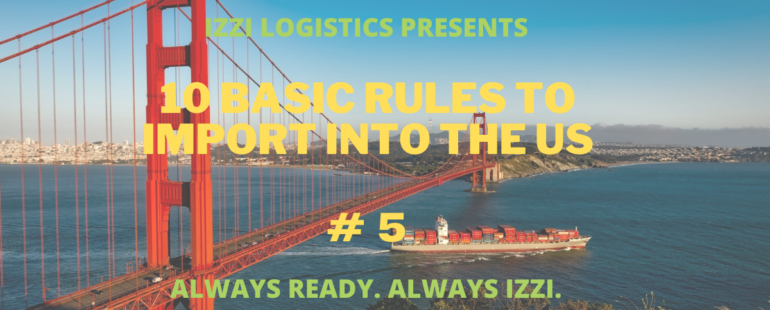Hello, again! Let’s talk about another important topic in the importing business: having a thorough understanding of the licenses and restrictions requirements there might be for your imports. We might even go as far as to say that this is probably one of the most important steps in the importing process. Imagine going through all the efforts of preparing for imports, only to be rejected at the US border due to the lack of compliance with certain restrictions.
What are Import Restrictions?
Any one of a series of tariff or non-tariff barriers imposed by the importing nation, which in our case is the United States. Import restrictions are usually set in place to control the volume of goods entering the country from various countries and may include import quotas, prohibition of certain import categories, requirements for import deposits, and import surcharges.
Licenses Required by the United States
The U.S. Customers and Border Protection does not require an importer to have a license or permit. However, for certain goods, some agencies may require a license, permit, or other certification. For instance, the products CBP prevents from entering are those that would adversely impact community health, public safety, domestic plant and animal life, citizens, or those that would defeat national interests.
3 Key Points to Keep in Mind
- Before importing, make sure you are well acquainted with the list of government agencies you might have to encounter or comply with. The guidelines from CBP describe the type of items that may require a license or permit. You can even contact the government agencies directly to procure more information.
- Reach out to the local port of entry to gain information about import requirements or any other information about the process.
- It’s important to know that you may not need an import license, but you will still need to fill out CBP entry forms within 15 days of the arrival of your import shipment.
*Ensure that all forms include your importer number, which is your IRS business registration number. To get one, click here. If you don’t have this, your importer number will essentially be your Social Security Number.
As a first-time importer, it’s always a good idea to consult an expert in international logistics, particularly if you find the importing procedures complicated and overwhelming. And that’s where we come in! At IZZI Logistics, we can help you fully prepare for all the CPB requirements and law regulations with our trusted customs broker.
However, it’s necessary to note that even when using a third-party customs broker, you – the importer of record – will be liable for all documentation and compliance with all licensing and restrictions. Failure to comply with restrictions or the inability to present any required licenses can put you in a rather difficult situation.
But we’re committed to ensuring you don’t come across anything of that sort. And this is exactly why we recommend having an experienced customs broker on your side to ensure your import process is as smooth and effortless as possible.
Ready to indulge in some cross-border trade? Reach out to us at izzicontact@izzilogistics.com
Stay tuned for part 6!


Comments (No Responses )
No comments yet.